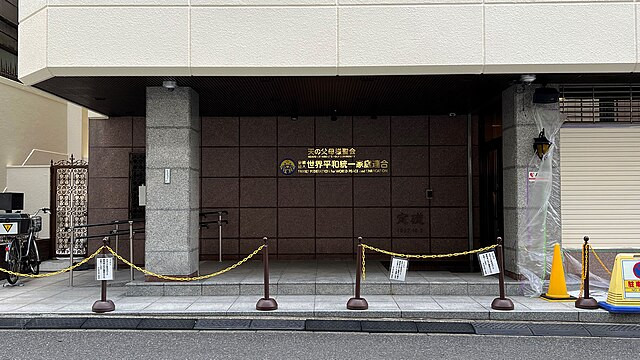A Tokyo court on Tuesday ordered the dissolution of the Unification Church's legal entity in Japan, marking a significant legal rebuke to the South Korea-based religious movement after revelations tied to the 2022 assassination of former Prime Minister Shinzo Abe.
The decision by the Tokyo District Court came in response to a 2023 request from Japan's Education Ministry, which cited the church's repeated use of manipulative fundraising and recruitment tactics that inflicted financial and emotional harm on its followers. The court found the group's conduct to be both extensive and ongoing, according to Japan's national broadcaster NHK, and said a dissolution was necessary due to the improbability of voluntary reform.
The ruling strips the church-officially known as the Family Federation for World Peace and Unification-of its tax-exempt status and requires it to liquidate its assets. The church said it was considering an appeal and denounced the decision as "regrettable and unjust." In a statement, it argued the ruling was based on "a wrong legal interpretation and absolutely unacceptable."
Chief Cabinet Secretary Yoshimasa Hayashi stated, "We believe our claims were accepted." He added that the government would continue efforts to support victims of the church's activities.
The order makes the Unification Church the first religious group in Japan to lose its legal status based on civil code violations. Two prior dissolutions-Aum Shinrikyo and the Myokakuji group-followed criminal convictions.
Founded in Seoul in 1954 by Rev. Sun Myung Moon, the Unification Church expanded internationally during the Cold War, developing ties with prominent conservative figures such as former U.S. Presidents Richard Nixon, Ronald Reagan, George H.W. Bush, and Donald Trump. In Japan, the church registered as a religious organization in 1968, bolstered by an anti-communist movement supported by Abe's grandfather, former Prime Minister Nobusuke Kishi.
The movement became a target of public scrutiny after Abe's assassination. The suspect reportedly harbored resentment toward the church, blaming it for his family's financial ruin. The church has long faced allegations of coercive fundraising, including the sale of so-called "spiritual merchandise" and pressuring members to make donations far beyond their means.
To support its request, the Education Ministry submitted 5,000 documents, including testimony from more than 170 individuals. The Agency for Cultural Affairs stated that more than 1,500 people had reached settlements with the church totaling over ¥20 billion ($132 million), either through court action or private agreements.
In a public statement following the ruling, attorneys representing victims said they welcomed the decision and urged the church to provide compensation and a formal apology.
The church has acknowledged excessive donation practices in the past but claims compliance has improved since 2009. However, critics argue the underlying doctrines remain unchanged. Experts say Japanese followers are often told to atone financially for ancestral sins committed during Japan's colonial rule of Korea from 1910 to 1945. The Japanese branch is believed to generate a majority of the church's global revenue.




